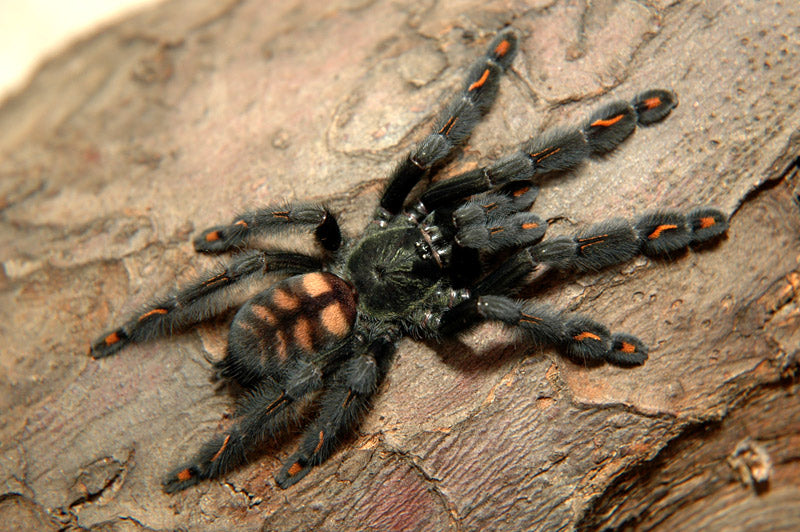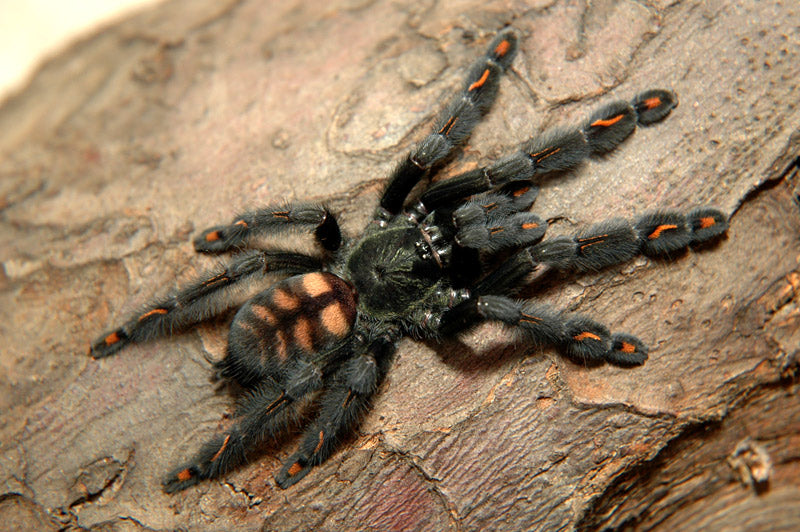Tarantuladen.co.za
Venezuelan Suntiger (Psalmopoeus Irminia)
Venezuelan Suntiger (Psalmopoeus Irminia)
Out of stock
Couldn't load pickup availability
The Venezuelan Suntiger — now this is a must-have for fans of speed, color, and webby drama. She's like the Ferrari of arboreals: sleek, black, blindingly fast, and streaked with fiery orange racing stripes. A stunning display tarantula with serious attitude.
Quick Facts
Common Name: Venezuelan Suntiger
Scientific Name: Psalmopoeus irminia
Origin: Venezuela and surrounding South American regions
Size: 5–6 inches (13–15 cm) leg span
Lifespan:
- Females: 10–12 years
- Males: ~3–4 years
Temperament: Highly defensive and very fast — more likely to bolt than bite, but not one to take lightly
Coloration:
- Velvety black base with vivid orange tiger striping on the legs and pedipalps
- Juveniles show color early — and adults are simply
Housing
Enclosure Type: Arboreal — tall enclosure with vertical hiding spaces
Substrate: 2–3 inches of slightly moist coco fiber or similar
Humidity: 70–80%
Temperature: 74–82°F (23–28°C)
Ventilation: Crucial — high humidity + poor airflow = mold and unhappy spider
Decor:
- Tall cork bark slab for hiding and webbing
- Plants and leaf litter for cover
- Water dish mounted or on the floor
- They'll build silken tunnels behind cork and dart in and out like ninjas.
Feeding
Diet: Crickets, roaches, mealworms, superworms
Feeding Frequency:
- Slings: 2–3x per week
- Juveniles: Weekly
- Adults: Every 10–14 days
Feeding style: Explosive. This species strikes fast and hard.
Why They’re So Iconic
Jaw-dropping coloration — one of the most striking tarantulas out there
Fast-growing — you won't be waiting years to see adult colors
Web-heavy arboreal — excellent for bioactive and display setups
Often seen outside their hides at night — great for observation
Less common than Avicularia, so more “collector’s tier”
Heads-Up
Not a beginner species — their speed can make rehousing stressful
Definitely not for handling — risk of injury (to you and the spider)
Can be skittish and may bolt with zero warning
Needs regular maintenance to avoid stale humidity or poor ventilation
Share


